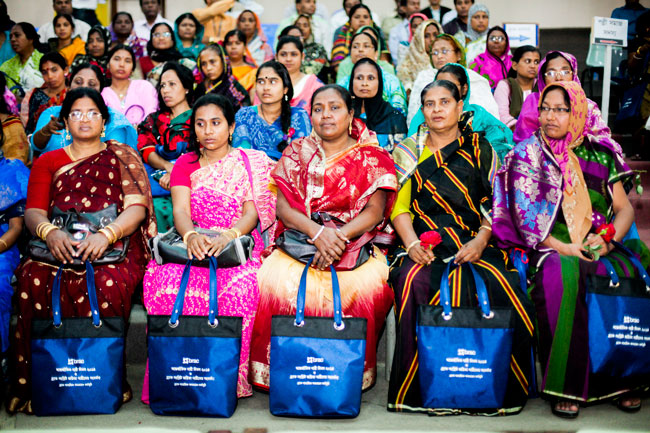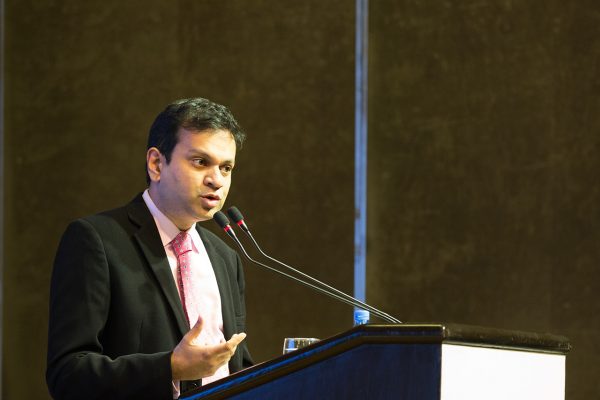Reading Time: 2 minutes
“When you lose your face, you lose the whole world,” said Feroza Begum with tears in her eyes. “[People] always turn around to look. Some kids shout, some follow, some hide.” Feroza is a survivor of acid violence. But her courage and strength through her hardship is what has earned her the title of joyeeta, the Bengali word for winning woman.
“When you lose your face, you lose the whole world,” said Feroza Begum with tears in her eyes. “[People] always turn around to look. Some kids shout, some follow, some hide.” Feroza is a survivor of acid violence. But her courage and strength through her hardship is what has earned her the title of joyeeta, the Bengali word for winning woman.
Last year the government initiated the Joyeeta Onneshone Bangladesh programme and presented 2,500 women with awards for their work and dedication in five categories: economic success, education and employment, successful motherhood, prevention of repression, and social development. Out of these women, 183 award recipients are directly involved with BRAC’s community empowerment programme (CEP). On the occasion of International Women’s Day 2014, CEP organised a reception on 10 March to honour these extraordinary women, who like Feroza have crossed significant hurdles to achieve their accomplishments today.
“I had dreamt of giving a better life to my family,” said Feroza during her speech at the reception. As she continued to tell her story, tears began brimming around the room. “I started to think my dreams had vanished with the flames of the acid,” she said.
But now Feroza has recovered from her injuries and is a successful small entrepreneur. “I did not stop dreaming of a bright future,” she said. “I am a happy wife, mother of two children and my battle to overcome repression and trauma has been acknowledged by everyone.”
Bhalobala Rishi, also an award recipient, could barely afford to purchase minimal food for survival. But she remained resilient and strived to become financially independent. So she saved money until one day, she had enough to open a small grocery shop in front of her home. Today Bhalobala has become the self-reliant person she has always wanted to be. She has gained the respect of her community members and inspired many other women in her village to start their own shops.
Stories of joyeeta like Feroza and Bhalobala show how individuals are able to achieve tremendous triumphs, even in the face of adversity. These outstanding women are polli shomaj (grassroots women’s forum) members, popular theatre performers, violence survivors and local government representatives trained under CEP’s strengthening local governance component. CEP with its distinctive set of interventions is creating opportunities to enable them to take control of their own lives.
Struggling against all odds, these women are now icons of change in society. Recognition of these remarkable individuals will be an important tool in inspiring others alike and making them more confident to help build a better future for the women of Bangladesh.
Salina Shahnaz Shilpi is a manager for communications in the community empowerment programme at BRAC.






